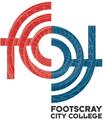ANAPHYLAXIS MANAGEMENT AT FCC

Anaphylaxis is the most severe form of allergic reaction and is potentially life threatening. Should a reaction occur it must be treated as a medical emergency.
Reducing the risk of exposure to allergies is the most effective way to avoid anaphylaxis. The most common allergens in school aged children are peanuts, eggs, tree nuts (cashews), cows milk, fish and shellfish, wheat, soy, sesame, latex, insect stings and some medications.
PREVENTION STRATEGIES
- The status of students in regard to any medical conditions that relate to allergy and the potential for anaphylactic reaction will be requested from parents at the time of their child's enrolment at the school.
- All current ASCIA Action Plans will be prominently displayed in the following locations; General Office, Canteen, First Aid Centre, Principal Class offices, Gymnasium, General Staff room and all other staff rooms. Parents are required to provide this plan which is reviewed annually.
- Students diagnosed by a Medical Practitioner as being at risk of anaphylaxis will be identified on all school classroom rolls through the Compass portal.
- Students diagnosed by a Medical Practitioner as being at risk of anaphylaxis will be required to have an Epi-pen (Autoinjector) with them at all times when they are at school or attending a school event.
- Staff will be informed that foods should not be used as rewards. Foods such as cakes or other foods that may be brought to school to celebrate birthdays etc. will require a full list of ingredients to be provided. On special occasions when food is freely available, teachers will ensure that a safe environment is maintained for students at risk of anaphylaxis
- Teachers of classes that involve cooking and food production will be briefed on all students with ASCIA plans
- Canteen staff will be briefed about students at risk of anaphylaxis and will need to demonstrate satisfactory training in food allergen management
- The Principal will ensure that while the student is under the care or supervision of the School, including excursions, yard duty, camps, and special event days, there is a sufficient number of School Staff present who have successfully completed an Anaphylaxis Management Training Course in the three years prior and that a detailed Risk Assessment is performed for all out of school activities
- The student's individual Anaphylaxis Management Plan will be reviewed by the designated teacher in charge when the student is to participate in off-site activities, such as camps and excursions or in special events organised or attended by the school
All members of the school community need to be aware of these strategies. We also aim to have all staff trained in the awareness, management, recognition and emergency treatment for anaphylaxis. Whilst students at risk of allergic reactions are required to carry their Epi-Pen, the school also stores both school and student Epi-Pens in the General Office, other areas of the school and in some first aid kits.
Should you have any concerns or questions as a parent, please contact the school. Further information is also available at the following sites www.allergy.org.au and www.allergyfacts.org.au
Stephanie Campbell Assistant Principal Years 10 –12
